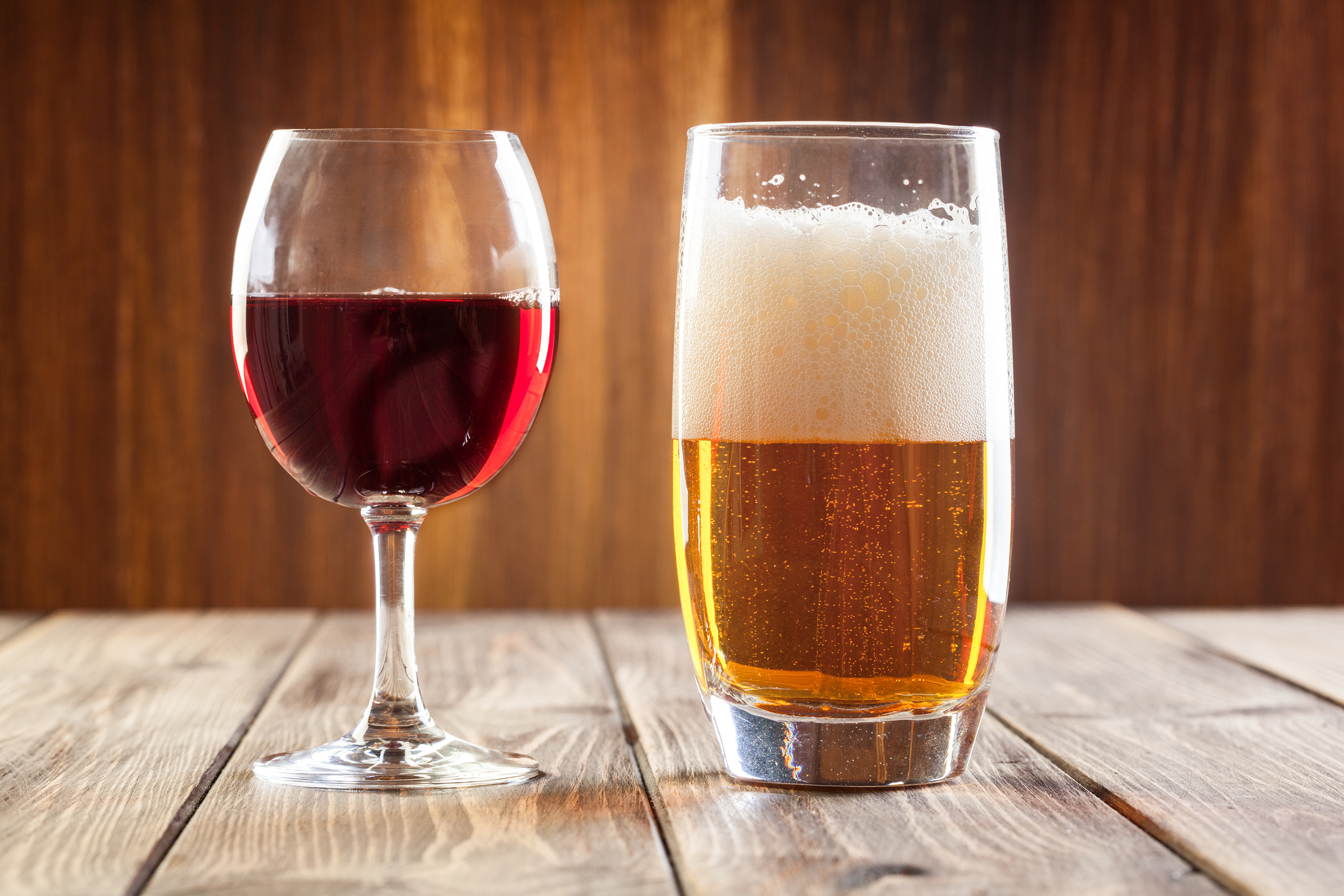Get Easy Health Digest™ in your inbox and don’t miss a thing when you subscribe today. Plus, get the free bonus report, Mother Nature’s Tips, Tricks and Remedies for Cholesterol, Blood Pressure & Blood Sugar as my way of saying welcome to the community!
Wine vs beer: One of these carries a higher stroke risk

There’s no doubt that drinking too much alcohol is bad for your health.
After all, research has shown that too much alcohol can hasten cognitive decline during three key periods in your life. It has linked alcohol with heart rhythm problems. It has given us mounting evidence that drinking and cancer may go hand-in-hand.
Yet, for all that, there’s confusion has still ruled the day, since many studies have focused solely on heavy drinking, leaving us to wonder if there is a safe level of alcohol we can enjoy.
This is especially true when it comes to the connection between alcohol and stroke risk.
“While high alcohol intake is known to increase stroke risk, there is some uncertainty about whether low-moderate alcohol intake affects stroke risk and whether the association of alcohol intake with stroke varies by region and population,” said Professor Martin O’Donnell, Professor of Neurovascular Medicine at University of Galway and Consultant Stroke Physician at Galway University Hospitals.
So, he and his team decided to rectify that lack of information as part of a worldwide study, known as INTERSTROKE.
Stroke risk by how much and alcohol preference
Their global study looked at the alcohol consumption of almost 26,000 people, a quarter of which were current drinkers, and two-thirds of whom were teetotalers.
And overall, the researchers found that high and moderate intake of alcohol was associated with increased odds of stroke. On the other hand, there was no link between low intake and stroke.
Their findings showed that:
- Current drinkers had a 14 percent higher chance of having any type of stroke and a 50 percent greater risk of intracerebral hemorrhage (a stroke due to bleeding), but no increased risk of ischemic stroke (a stroke due to a blood clot).
- Binge drinking (having more than five drinks in one day at least once a month) was linked to a 39 percent increase in all strokes, a 29 percent increase in ischemic stroke, and a 76 percent increase in intracerebral hemorrhage.
- High alcohol intake, which the researchers defined as more than 14 drinks per week for women and more than 21 drinks per week for men, increased stroke risk by 57 percent.
The researchers even broke down stroke risk by the type of alcohol consumed.
“In this study, we also looked at the differences between types of alcohol. Predominant beer consumption was linked with a 21 percent increase in risk of stroke; this was significantly higher (73 percent) for intracerebral hemorrhage. Predominant wine consumption was not linked with risk of stroke – there was no increase or decrease,” says Professor Andrew Smyth, Professor of Clinical Epidemiology at University of Galway.
So, it seems that drinking beer may carry a higher risk than a glass of wine.
Finally, the research delivered good news for anyone who was a drinker in the past but has since given up alcohol. Previous drinkers who have stopped have no increased risk of stroke!
Now that we know the real facts about alcohol and stroke risk, we’re all able to make better decisions about how much we consume and what type might help mitigate that risk.
Editor’s note: There are perfectly safe and natural ways to decrease your risk of blood clots including the 25-cent vitamin, the nutrient that acts as a natural blood thinner and the powerful herb that helps clear plaque. To discover these and other secrets of long-lived hearts, click here for Hushed Up Natural Heart Cures and Common Misconceptions of Popular Heart Treatments!
Sources:
University of Galway study identifies alcohol risk factors for acute stroke – EurekAlert!













